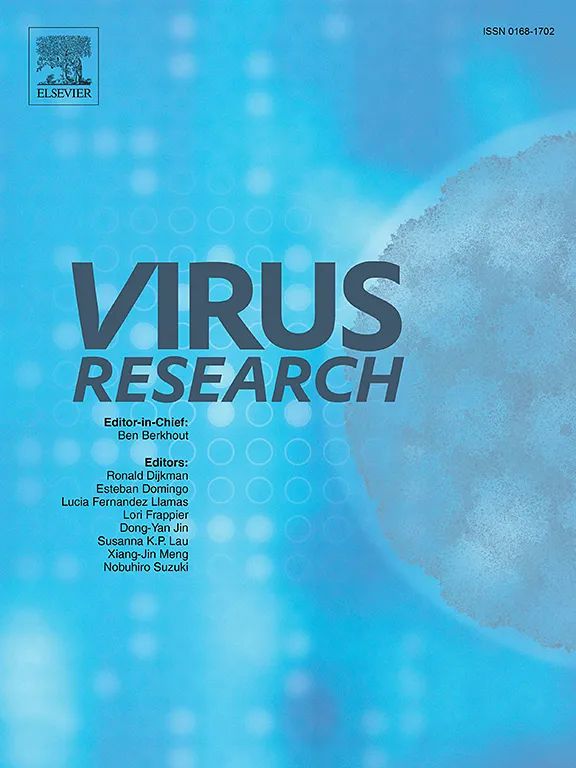重组腺相关病毒2介导的miRNA-199抑制载体缓解硫酸葡聚糖钠诱导的小鼠溃疡性结肠炎。
IF 2.7
4区 医学
Q3 VIROLOGY
引用次数: 0
摘要
目的:用重组腺相关病毒(rAAV) 2载体转染小鼠结肠组织。我们的目的是确定rAAV载体是否可以介导结肠组织中的基因表达,以及microRNA (miRNA)-199a-5p在调节葡聚糖硫酸钠(DSS)处理小鼠结肠炎症反应中的作用。方法:观察不同转染方法和转染次数对小鼠结肠组织的影响。将rAAV-miRNA-199a-5p载体(和对照)转染到dss诱导结肠炎小鼠模型的结肠组织中。采用PCR定量检测miRNA和mRNA的表达水平,采用TUNNEL法检测结肠组织的细胞调控和组织学改变。结果:转染后3周,rAAV通过去核在结肠组织中的转染效率高于尾静脉注射和腹腔注射。抑制miRNA-199a-5p可降低小鼠结肠组织的炎症反应和凋亡。结论:rAAV可作为抑制小鼠结肠组织基因表达的载体。在结肠炎小鼠中,raav介导的miRNA-199a-5p抑制可降低炎症反应。本文章由计算机程序翻译,如有差异,请以英文原文为准。
Recombinant adeno-associated virus 2-mediated miRNA-199 suppression vector alleviates dextran sulfate sodium-induced ulcerative colitis in mice
Aim
Mouse colonic tissue was transfected with a recombinant adeno-associated virus (rAAV) 2 vector. We aimed to determine whether the rAAV vector could mediate gene expression in the colonic tissue and the role of microRNA (miRNA)-199a-5p in regulating the colonic inflammatory response in dextran sulfate sodium (DSS)-treated mice.
Methods
Different transfection methods and transfection times were found to be the most effective for mouse colonic tissue. The rAAV-miRNA-199a-5p vector (and control) was transfected into the colonic tissue of a mouse model of DSS-induced colitis. PCR was used to quantify miRNA and mRNA expression levels, and the TUNNEL assay was used to identify cellular regulation and histological alterations in colonic tissues.
Results
At three weeks following transfection, rAAV produced a higher transfection efficiency in colonic tissues via enucleation than via caudal vein injection and intraperitoneal injection. The colonic inflammatory response and apoptosis in mouse colonic tissues were reduced by miRNA-199a-5p inhibition.
Conclusion
rAAV can be used as a vector to inhibit gene expression in mouse colonic tissues. In mice with colitis, the rAAV-mediated suppression of miRNA-199a-5p reduces the inflammatory response.
求助全文
通过发布文献求助,成功后即可免费获取论文全文。
去求助
来源期刊

Virus research
医学-病毒学
CiteScore
9.50
自引率
2.00%
发文量
239
审稿时长
43 days
期刊介绍:
Virus Research provides a means of fast publication for original papers on fundamental research in virology. Contributions on new developments concerning virus structure, replication, pathogenesis and evolution are encouraged. These include reports describing virus morphology, the function and antigenic analysis of virus structural components, virus genome structure and expression, analysis on virus replication processes, virus evolution in connection with antiviral interventions, effects of viruses on their host cells, particularly on the immune system, and the pathogenesis of virus infections, including oncogene activation and transduction.
 求助内容:
求助内容: 应助结果提醒方式:
应助结果提醒方式:


